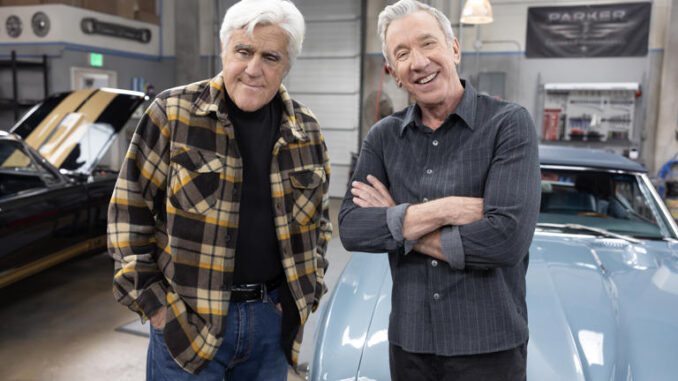
The Echo of the Tool Belt: Tim Allen, Shifting Gears, and the Enduring Power of a Sitcom Family
The familiar grunt, the knowing smirk, the glint of a tool belt – for a generation, these were the hallmarks of a Friday night ritual, the comforting presence of Tim "The Tool Man" Taylor. Home Improvement wasn't just a sitcom; it was a warm, well-oiled machine that built its legacy on family, relatable mishaps, and the eternal quest for "more power!" Decades have passed, the sawdust has settled, but the echoes of that beloved workshop still resonate. Now, with the news that Tim Allen is reuniting with his Home Improvement co-stars in his new series, Shifting Gears, a nostalgic hum ripples through the cultural zeitgeist, inviting us to explore not just a simple casting decision, but a deeper reflection on time, legacy, and the enduring power of a forged family.
The initial lure, undeniably, is pure, unadulterated nostalgia. The announcement that Patricia Richardson (Jill Taylor), Jonathan Taylor Thomas (Randy Taylor), and Richard Karn (Al Borland) will grace the screen alongside Allen once more isn't just news; it's a collective sigh of contentment. It transports us back to a simpler time, when television offered a weekly dose of wholesome, observational humor. We remember Jill's exasperated wisdom, Randy's intellectual wit, and Al's flannel-clad, deadpan delivery, forever the patient foil to Tim's boisterous ambition. This reunion isn't merely about seeing familiar faces; it’s about touching a piece of our own past. It’s the comforting warmth of a well-worn blanket, a reminder of the laughter shared with our own families, watching the Taylors navigate the absurdities of suburban life. The very thought conjures the grating sound of a saw, the smell of fresh lumber, and the unspoken understanding that no matter how much Tim messed up, he’d always come home to a loving, if slightly exasperated, family.
Yet, this isn't just a simple rewind. Shifting Gears itself represents Tim Allen's continued evolution in the comedic landscape. While Home Improvement was built on the premise of a "tool man" navigating domesticity, Shifting Gears pivots to a more contemporary narrative, exploring the generational gap and cultural clashes through the lens of a cranky auto mechanic’s family business. The return of his former co-stars within this new context is what truly elevates the reunion beyond mere fan service. It's a bridge across the decades, a conversation between the old and the new. How will the established dynamics of a Taylor family member or the indelible presence of Al Borland translate into this fresh narrative? Will they echo their iconic roles, offering knowing winks to the audience, or will they embody entirely new characters, showcasing the actors' growth and versatility? The exciting tension lies in this balance, in seeing beloved figures adapt to a world that has, much like its audience, fundamentally shifted.
Beyond the characters and the comedy, there's a poignant human element at play. Actors, like real families, forge bonds over years of shared work, early call times, late night shoots, and the unique pressure of creating something for public consumption. To see Tim Allen, Patricia Richardson, Jonathan Taylor Thomas, and Richard Karn together again is to witness the reunion of a genuine, if professional, family. Time, as it always does, has etched lines and silvered hair, but the spark of shared history, the shorthand of old friends, remains. One can imagine the behind-the-scenes moments: the easy banter, the inside jokes, the quiet camaraderie that only decades of shared experience can build. This isn't just about a script; it's about a tapestry of lives intertwined, offering a rare glimpse into the enduring connections that transcend the fleeting nature of a hit show. It's a testament to the fact that while the cameras stop rolling, the relationships can, and often do, endure.
Ultimately, Tim Allen's reunion with his Home Improvement co-stars in Shifting Gears is more than just a casting coup. It's a cultural touchstone that speaks to our collective yearning for comfort, continuity, and the joyful surprise of seeing old friends on a new stage. It reminds us that while the gears of time keep turning, and the landscape of television continues to evolve, the fundamental human desire for laughter, connection, and the echoes of a well-loved past remains steadfast. As Tim Allen continues to seek "more power" in his comedic endeavors, this reunion offers a different kind of power: the enduring strength of a sitcom family, rebuilt and ready to rev up for a new generation. And for that, we can only offer a familiar, appreciative grunt.